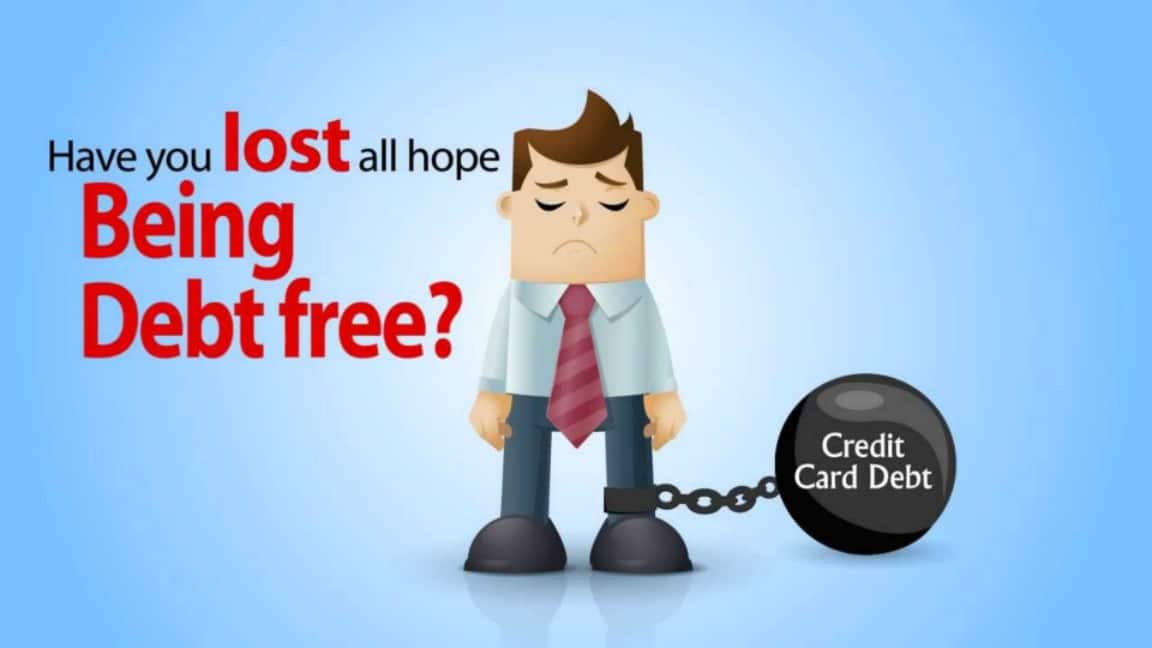The Ira Smith Team is totally operational and both Ira and Brandon Smith are here for a telephone consultation, conference calls, and virtual meetings.
Keep healthy and safe everybody.
If you would prefer to listen to the audio version of this Brandon’s Blog, please scroll to the very bottom and click on the podcast.
What is financial literacy in Canada
Financial literacy in Canada is having the skills and expertise to make informed decisions concerning managing your money. Recognizing basic financial ideas allows people to understand just how to navigate the financial system. People with financial literacy skills make better monetary decisions and handle cash much better than those without these skills.
We remain in uncharted waters currently in Canada. The COVID-19 pandemic has actually called for the Canadian government to give economic support programs to both individuals as well as businesses. Canadians’ 2019 personal income tax obligation payment due date has been extended and is due September 30, 2020. The Canada Emergency Response Benefit (CERB) payments are ending soon. The Canada Emergency Wage Subsidy (CEWS) will end in December 2020.
Where will Canadians end up when government subsidies end? LendingArch has reported that there has been a 1000 percent increase in demand for debt relief and loan refinancing among Canadians. So I thought it would be an opportune time to discuss the state of financial literacy in Canada.
Why is financial literacy in Canada important?
Financial literacy in Canada requires to begin with student education. It will aid students to:
- Thoroughly consider their money options. This can relate to daily decisions, like acquiring groceries to bigger investments, like spending for tuition or getting a vehicle.
- Understand fundamental money management.
- Create their very own point of view on financial issues, such as rates of interest, home mortgage guidelines, or the Canadian or worldwide economy.
Financial literacy in Canada and money management go hand in hand
Establishing excellent finance practices like budgeting at an early stage in life is essential to financial wellness in the long term. Without fundamental financial literacy abilities, individuals are a lot more quickly tempted right into financial debts: utilizing credit cards, extending lines of credit, and also taking out high-interest predatory loans, without totally comprehending the ramifications of paying back those financial debts.
Many individuals have a difficult time talking about money at home too. The research I talk about below shows that typically, Canadians’ financial literacy in Canada is above average. Nonetheless, at the very least one study reveals Canadian moms and dads prefer to speak to their youngsters regarding sex than money matters. Not comprehending the fundamentals of finance could send their children into a financial freefall. The topic of this blog is not sufficiently wide to talk about the ramifications of children not understanding the concepts of responsible and safe sex!
Perhaps it comes down to financial preparedness and confidence.
How is financial literacy in Canada assessed?
The Programme for International Student Assessment (PISA) is an international survey that intends to assess education systems around the world by evaluating the abilities and also understanding of 15-year-old pupils in topics like science, math, reading, joint problem resolving, and financial literacy.
In the 2015 PISA survey, Canada took part in it for the very first time. PISA does not measure academic success in relation to each institution’s curricula. It does examine pupils’ capacity to apply understanding and abilities as well as to examine, reason, and also connect effectively as they examine, assess, and resolve problems. The results supply a crucial standard step for financial literacy in Canada.
The Council of Ministers of Education, Canada (CMEC) reported that in 2015, Canadian 15-year-old students attained an above-average score. Amongst the 15 countries and economies that joined the 2015 PISA financial literacy study, only one, China, outmatched Canada.
A different 2015 research revealed that overall Canadians stack up well on financial literacy contrasted to their peers in other places of the world. For example, the 2015 Organisation for Economic Co-operation and Development (OECD) Survey on Measuring Financial Literacy and Financial Inclusion measured respondents’ financial knowledge, attitudes, and behaviours. It ranked Canadians’ overall financial literacy third out of 29 countries.
The results were that only 61% of Canadians could correctly answer five of seven financial knowledge questions. That is what gave Canadians’ overall the financial literacy standing of 3rd place.
So it appears based on these 2015 studies, that Canadian youth on average as a group score better than Canadians as a whole, although overall financial literacy in Canada is above average. Presumably, it is the Canadian school system teaching financial literacy that might account for the overall better performance of 15-year-old Canadians versus a mixed age group.
How is financial literacy in Canada taught in Ontario schools?
The Ontario government has recently overhauled its financial literacy education and learning program. Pupils in grades 4-12 learn about financial literacy so they can comprehend just how to make enlightened financial choices.
Financial literacy belongs to the elementary and secondary schools’ educational programs in many different subjects such as mathematics, social studies, Canadian and world studies and also business studies. In some subjects, pupils may be learning details of and abilities for understanding money and money management, consumer education, savings and budgeting. This will certainly help them create financial literacy in Canada abilities. In various other subjects, financial literacy connections may be made as pupils learn more about their place in the world, as a responsible and caring person or when they examine different economic systems.
What resources are available to teachers for classroom use to teach financial literacy in Canada?
Via the educational program, pupils are creating abilities in critical reasoning, decision-making as well as solving problems that can be applied for both education and also to real-life circumstances. Resources have been created for teachers to help them connect financial literacy topics across the curriculum to grow the students’ discovering and making financial literacy in Canada much more meaningful to them.
Teacher videos, guides and lesson plans are developed to supply financial literacy teaching are developed to assist.
What resources are available for teachers to help parents support their children’s financial literacy in Canada?
Moms and dads have an essential duty to play in supporting their children to create the skills, knowledge, and behaviours to navigate today’s significantly complicated economic world. Parent resources have been established to highlight the Ministry of Education’s financial literacy in Canada methodology and to direct parents in engaging their youngsters in financial literacy matters. These sources can be made use of to support discussions at parent-teacher evenings, student fairs, and various other parent-child learning situations.
The Financial Consumer Agency of Canada has actually developed an outline based on best practices in assessment methodology and what it has discovered in assessing its very own financial literacy sources and program. The provincial Ministries of Education have developed their very own programs as mentioned above with this guidance.
Financial literacy in Canada: Canadians share what they wish they learned about money
Even though on average Canadians score above average in a financial literacy test, Canadians still don’t feel confident they know everything they can about financial planning.
Huffington Post Canada reported that over half of Canadians are only $200 away from insolvency, and 31 percent don’t make enough to cover their bills, according to a recent poll of 1,500 Canadians.
Alison Carson, Oakville, Ont. high school teacher wished she found out the most effective method to invest her money. As a teacher, a large part of her paycheque goes into her pension plan. She says she relies upon her employer to invest her money in such a way that will offer her the very best retirement possible. However, she doesn’t know enough regarding exactly how it all works to keep track of it.
“I just trusted that if there was a problem … that someone more financially literate than me would’ve figured that out, and there would be some article written about it, and I would read the article,” she said.
Ontario Securities Commission Investor Education Fund (IEF) supports financial literacy in Canada
Started by the Ontario Securities Commission, the IEF site offers individual finance advice for consumers in various life situations as well as resources for instructors and students. It supplies an excellent introduction of the major types of investments – stocks, bonds, mutual funds, RRSPs – as well as uses a range of calculators, worksheets and tests.
This website, which combines the instructional resources of all 12 U.S. Federal Reserve Banks and the Board of Governors of the Federal Reserve, offers public and class resources on business economics, personal finance, banking, and money management. It also offers interactive tools and games for grades K to 12; as well as web links to various other sites of financial education and learning (within and outside the U.S. Federal Reserve system).
This is their contribution to financial literacy in Canada.
Financial literacy in Canada summary
I hope you enjoyed this financial literacy in Canada Brandon’s Blog. November is Financial Literacy Month in Canada. Throughout November, organizations and individuals from across the country are encouraged to host and participate in events and share resources aimed at helping Canadians learn how to manage their personal finances successfully. But we don’t have to wait until then to begin learning.
The Ira Smith Team family hopes you and your family are staying safe, healthy and well-balanced. Our hearts go out to every person who has been affected either through inconvenience or personal family tragedy.
We are all citizens of Canada and we have to coordinate our efforts to stop the spread of the coronavirus. Social distancing and self-quarantining are sacrifices that are not optional. Family members are literally separated from each other. We look forward to the time when things can return to something close to normal and we can all be together again physically.
Ira Smith Trustee & Receiver Inc. has always employed clean and safe habits in our professional practice and continues to do so.
Revenue and cash flow shortages are critical issues facing entrepreneurs and their companies and businesses. Should you take advantage of the CEBA? I say a resounding YES!. I just wanted to highlight all of the issues that you should consider.
If you need financial help right now, feel confident that Ira or Brandon can still assist you. Telephone consultations and/or virtual conferences are readily available for anyone feeling the need to discuss their personal or company situation.
Are you now worried just how you or your business are going to survive? Those concerns are obviously on your mind. This pandemic situation has made everyone scared.
The Ira Smith Team understands these concerns. More significantly, we know the requirements of the business owner or the individual that has way too much financial debt. You are trying to manage these difficult financial problems and you are understandably anxious.
It is not your fault you can’t fix this problem on your own. The pandemic has thrown everyone a curveball. We have not been trained to deal with this. You have only been taught the old ways. The old ways do not work anymore. The Ira Smith Team makes use of new contemporary ways to get you out of your debt problems while avoiding bankruptcy. We can get you debt relief now.
We look at your whole circumstance and design a strategy that is as distinct as you are. We take the load off of your shoulders as part of the debt settlement strategy we will draft just for you.
We understand that people facing money problems require a lifeline. That is why we can establish a restructuring procedure for you and end the discomfort you feel.
Call us now for a no-cost consultation. We will listen to the unique issues facing you and provide you with practical and actionable ideas you can implement right away to end the pain points in your life, Starting Over, Starting Now.
The Ira Smith Team is totally operational and both Ira and Brandon Smith are here for a telephone consultation, conference calls and virtual meetings.
Keep healthy and safe everybody.






